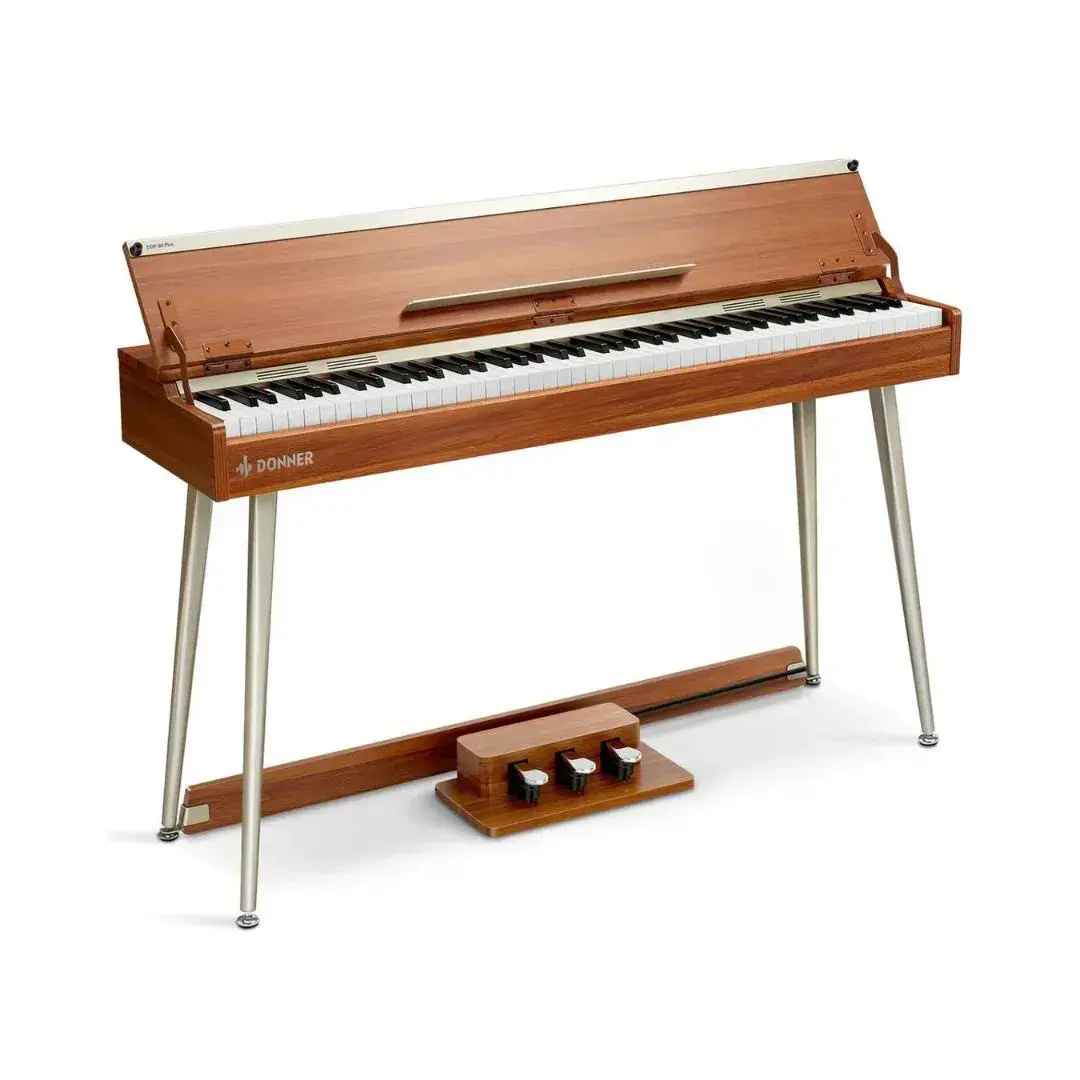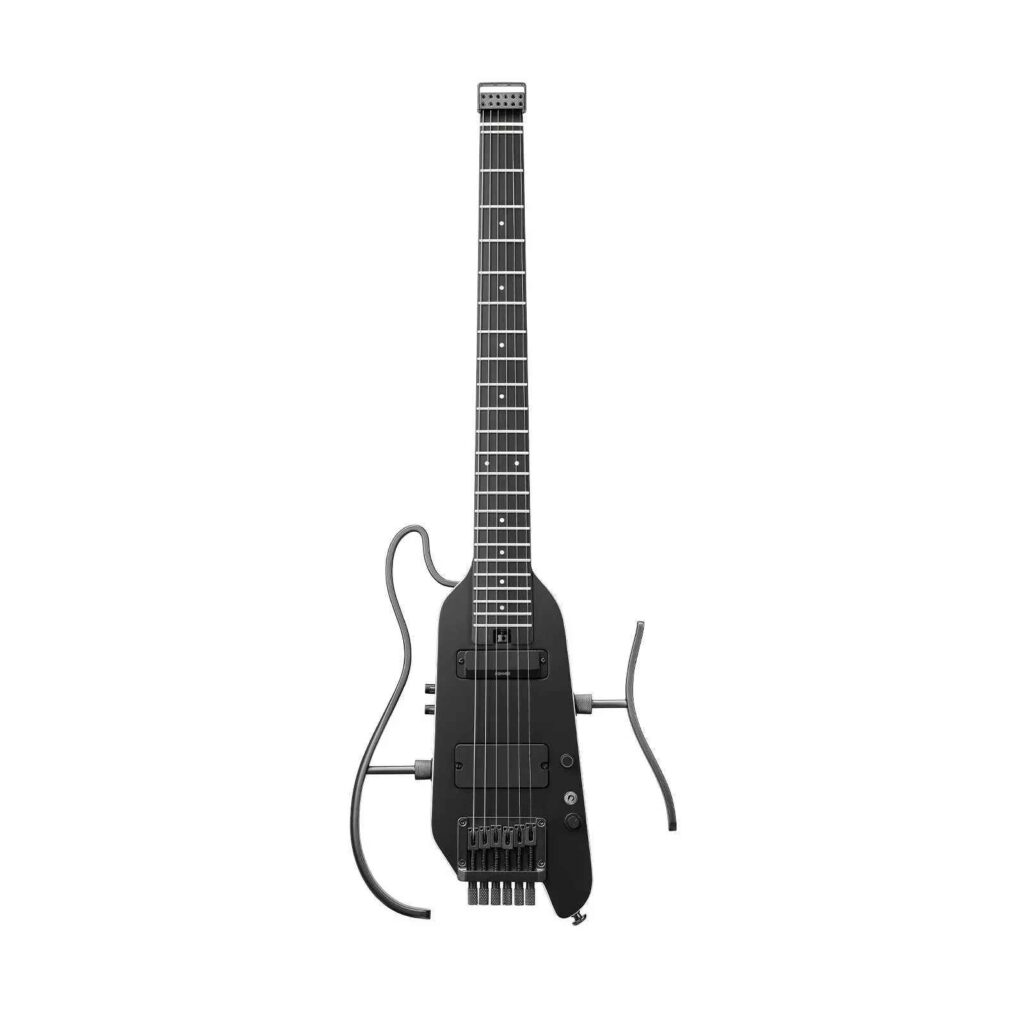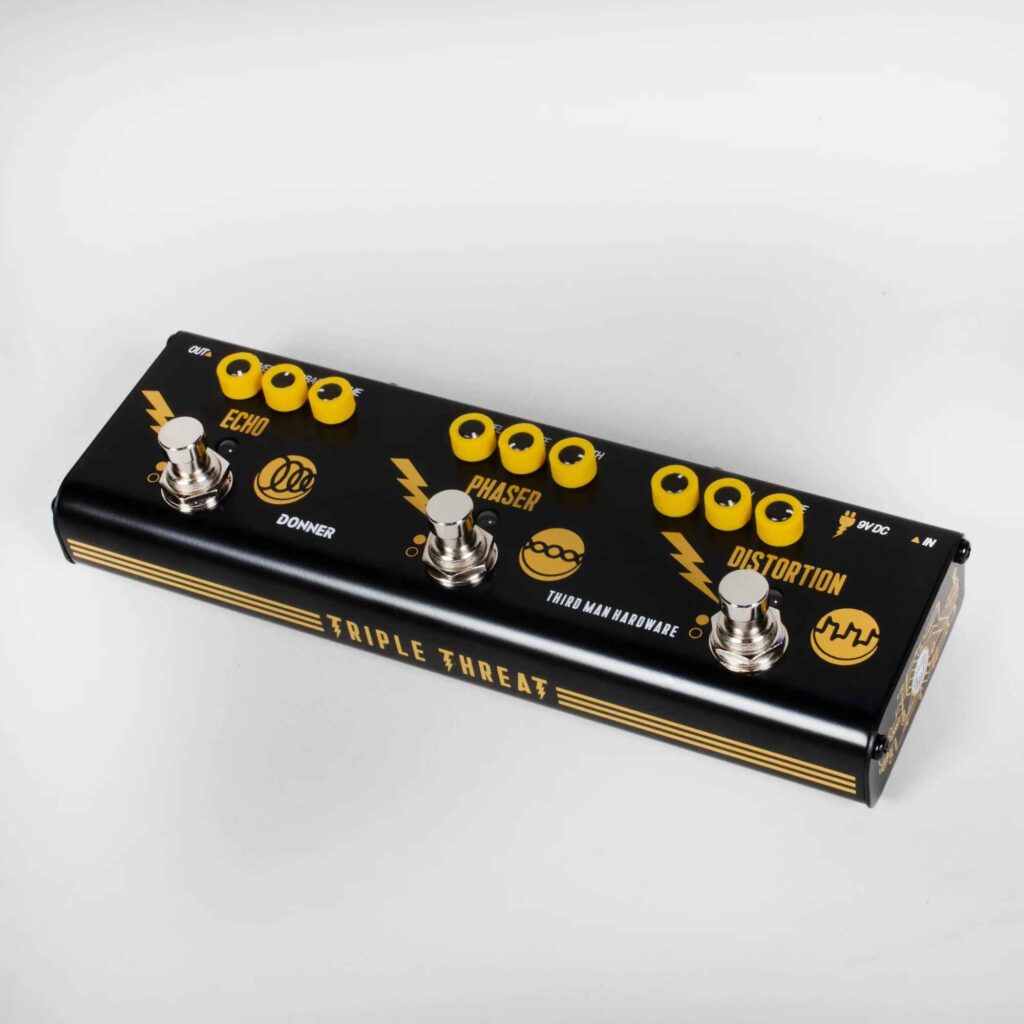When I first stumbled across Donner Music US, I was both intrigued and a little skeptical. After all, for over a decade working as a content writer and reviewing gear, I’ve learned that “budget brand” often comes with caveats. But having spent real time testing a range of Donner instruments and accessories, I want to share my honest take: which products are surprisingly solid, where they fall short, and for whom they might be worth your investment. In this review, I’ll walk you through five standout Donner items—from digital pianos to guitars to pedals—and share the tips I gathered from hands-on use (and a few hard lessons learned).
Below are my reviews of five Donner products. For each, I’ll cover first impressions, performance during real use, pros/cons, and advice for potential buyers.
1. Donner DDP‑80 Plus Digital Piano
First impression & setup
This 88-key weighted digital piano immediately felt more substantial than I expected for its price tier. The keys have a solid, slightly heavier feel (not quite like a grand piano, but convincingly close for a home setup). The product comes bundled with a bench, sustain pedal, and stand, which is a nice touch for beginners.
Performance in use
Over several weeks I practiced both simple and more advanced pieces. The DDP-80 Plus handled dynamics fairly well—if you play softly, the lower volume is clear; if you strike harder, it responds. The built-in speakers are decent for a small room but don’t project far; for any performance or recording, you’ll want to plug into external amplification or monitors. The Bluetooth and USB/MIDI connectivity worked reliably in my tests (I connected it to a laptop and mobile device without trouble).
Pros
- Excellent “bang-for-buck” for 88 weighted keys in this price range
- Decent dynamic response for practice
- Good accessory bundle (stand, bench, pedal)
- Useful connectivity options (USB, MIDI, Bluetooth)
Cons / caveats
- Built-in speakers are modest — don’t expect concert-level sound
- Some reviewers reported occasional key sticking or quality issues in delivery.
- The customer service experience with Donner has drawn criticism in various reviews.
Recommendation
If you’re a beginner or intermediate pianist who wants full key range without spending thousands, the DDP-80 Plus is a compelling option. But always test each key carefully on receipt and keep the 30-day return period in mind.

2. Donner DDP‑80 Pro Digital Piano
First impression & setup
The Pro version upgrades some internal components and adds more sound options. Out of the box, it felt slightly more solid in build quality (less “wobble” in casing) than the Plus version. The control panel is more intuitive, and access to more voices is a noticeable perk.
Performance in use
Playing through classical, jazz, and pop songs, I appreciated having extra voices (electric pianos, strings, etc.). The weighted keys were responsive, and latency was minimal when connected via USB to a DAW. For recording, the audio output proved adequate with a clean signal path.
Pros
- More voices and better control interface than basic models
- Slightly sturdier build
- Good for both home use and semi-studio setups
Cons / caveats
- Higher price—so margin for errors or defects is more painful
- Some of the extra tones, while many in number, are less polished than the core piano voices
- Same concerns about service and shipping reliability around Donner brand remain relevant
Recommendation
If budget allows, the Pro is worth the leap up from the Plus—especially for users who want more sonic versatility and intend to integrate with digital setups.
3. Donner Hush X Pro Silent/Travel Guitar
First impression & setup
The Hush X Pro is part of Donner’s “silent / travel” guitar line. It’s lightweight, compact, and built for portability. The lack of a full body takes some getting used to, but it’s perfect for quiet practice or travel use.
Performance in use
Plugging in through headphones yields surprisingly rich tone—especially given the body is essentially a frame. I liked the built-in effects and tone-shaping options (reverb, delay, etc.). When paired with a decent amp, the sound becomes more guitar-like and less “toy” feeling. The neck is comfortable, and fretwork was usable out of the box.
Pros
- Silent practice (ideal for apartments, travel)
- Built-in effects and tone control
- Very portable and lightweight
- Good complement to a main guitar for practice sessions
Cons / caveats
- Because it’s a travel / silent design, acoustic resonance is minimal
- Battery life—if effects are always on—can be a limiting factor
- Some users report weak hardware (tuners, connectors) on Donner guitars in general.
- Customer service and warranty fulfillment may be a challenge.
Recommendation
Use the Hush X Pro as a supplementary instrument: great for practice in quiet settings or as a travel companion. Don’t expect it to fully replace a full-body guitar in tone or stage use.

4. Donner DST‑550 Electric Guitar
First impression & setup
The DST-550 is Donner’s take on a modern HSS (humbucker-single-single) electric guitar. I received mine in a pretty well-packed case. Tuning was roughly correct but required a few adjustments. The accessories (cable, strap, extra strings) were a welcome inclusion.
Performance in use
Upon plugging into a modest amp, I tested cleans, overdrive, and distortion. The humbucker in bridge provides a solid crunch, and the single-coils are reasonably clear for rhythm/clean work. The balance between pickups is fair, though I noticed some hiss on very clean settings. The neck feels playable for lead lines; fret ends needed a minor smoothing (a common small adjustment in budget guitars). In forums, users often say Donner builds are inconsistent, with some guitars far better out of the box than others.
Pros
- Versatile pickup configuration (HSS)
- Decent tone especially when paired with effects
- Good value for a full electric kit
- Accessory bundle helps beginners
Cons / caveats
- Quality control inconsistencies—your unit may need tweaks
- Hardware (tuners, bridge parts) is not premium-grade
- Some signal noise on clean settings
- Returns/repairs could be slow or problematic with Donner.
Recommendation
If you’re on a budget and want an electric that covers blues to rock with flexibility, the DST-550 is a solid option. Be prepared to tinker a bit (adjust bridges, fret ends) for best performance.
5. Donner Triple Threat Guitar Effect Pedal
First impression & setup
This pedal claims to deliver three effects in one: distortion, delay, and reverb. The build is compact and feels solid in hand. Controls are straightforward (knobs and toggles). I connected it inline between guitar and amp.
Performance in use
I tried different combinations: distortion + reverb, delay + distortion, etc. It does a good job for home or practice-level rigs. The distortion is gritty but usable; the delay is modest (not ultra-clean for studio use), and the reverb adds a pleasant sense of space. For more ambitious tone work, a separate high-end pedal might outperform it—but for its size and cost, the Triple Threat is quite capable.
Pros
- Three common effects in one pedal—space-saving
- Intuitive controls, useful for stacking effects
- Solid for practice rig or beginner pedalboard
- Compact and durable build
Cons / caveats
- Effects are functional but not top-tier audiophile quality
- Some noise floor when all effects are active
- Power supply needs to be clean to avoid hum
- Because Donner is relatively smaller brand, spares or support may be harder to get
Recommendation
If you’re building a compact pedalboard or want a versatile multi-effect unit without owning separate pedals, this is a very good pick. Just don’t expect holy-grail-level studio tone, but as a go-to compact multi-effect device, it shines.

Summary & Final Thoughts (Conclusion)
After weeks of hands-on testing, I feel comfortable saying: Donner products deliver impressive value for what you pay—but with some caveats. None of these instruments are flawless implants from the factory. Many will require small tweaks (setup, intonation, fret ends, cable quality) to get them to a comfortable level. But for those tweaks, the cost is still relatively low compared to premium brands.
Here’s what I’d highlight as key takeaways:
- Strength in affordability + functionality: Donner’s instruments give you real features (weighted keys, full pickup configurations, effects) at price points that undercut mainstream brands.
- Best for beginners / intermediate users: If you’re starting or upgrading modestly, these instruments are ideal. For professionals chasing perfect tone or ultra-refined builds, you’ll find better—but at much higher cost.
- Expect to tinker: Always test every key, fret, pickup, and knob upon arrival. Be ready to make small adjustments—or even return within the 30-day window.
- Service & delivery concerns: Many users have reported issues with customer service responsiveness, delayed shipping, or getting support for defects. Always document condition upon delivery (photos, videos).
- Use in the right context: These Donner products shine at home studios, apartment practice, travel, or as backup instruments—not necessarily as the “end all” gear for professional touring without checks.
If I were to choose a starter bundle from Donner for a home musician, I’d probably recommend the DDP-80 Plus (or Pro, if budget allows) as the foundation, pair it with the Triple Threat pedal for basic effects, and optionally a Hush X Pro as a quiet travel companion. Add the DST-550 if you also play electric guitar styles, and the DED-200 series (not deeply reviewed above) for drum backing. (I did test Donner’s DED-200 series briefly, and its electronic drum response is acceptable for casual practice—though module latency is modest.)
In short: Donner is not a magic bullet, but it’s a surprisingly viable choice for many musicians on a budget. If you buy, do so with realistic expectations and always test carefully once it arrives.



